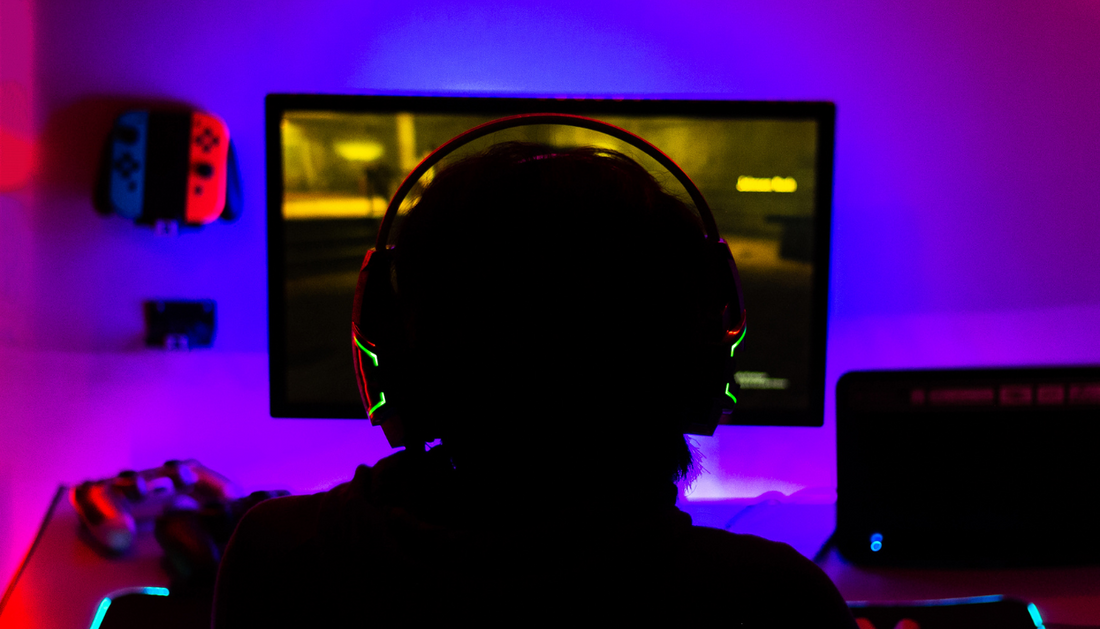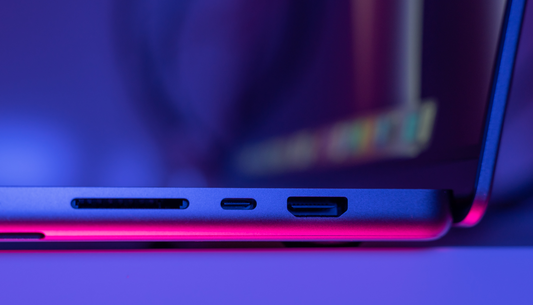
What’s the Best Screen Size for a Gaming-Laptop-Computer?
Choosing the right screen size for your gaming laptop is key. It affects both how well it performs and how easy it is to carry. The best gaming laptop should offer a great display and be easy to move around.
Whether you want to dive into games deeply or need a laptop that's easy to take with you, picking the right screen size matters. It's all about finding the perfect balance for your gaming needs.

Understanding the Importance of Screen Size in a Gaming-Laptop-Computer
Choosing the right screen size for a gaming laptop is key for a great visual experience and performance. The size of your laptop display affects how well your gaming laptop performs. A bigger screen can offer a clearer and more detailed gaming experience. But, it might make the laptop less portable and reduce battery life.
When picking a screen size, think about how it matches with laptop screen resolution. For instance, a 15-inch display with 1080p resolution might look sharper than a larger screen with the same resolution. But, a 17-inch display with 4K resolution can give you amazing visual quality for top-notch gaming.

Finding the right balance between screen size, resolution, and portability is important. If you often game on the move, a 13 to 15-inch laptop might be best. But, if you want a deep, detailed gaming experience, a 17-inch or bigger screen could be better. It's just heavier and larger. Here's a comparison to help you decide:
| Screen Size | Resolution | Portability | Gaming Performance |
|---|---|---|---|
| 13-15 inches | 1080p | High | Moderate |
| 15-17 inches | 1440p | Medium | High |
| 17 inches and above | 4K | Low | Very High |
Small Screen Sizes: Pros and Cons
Choosing a gaming laptop with a smaller screen has its perks. Screens around 14 inches are great for those who are always on the move. They're light and easy to carry, keeping your gaming experience portable.
Smaller screens are perfect for travel because they're not heavy. They have strong graphics cards, so you can play games well, even with a smaller screen.

But, there are downsides to smaller screens too. They might not give you the same feeling of being in the game as bigger screens do. Also, you can't upgrade them as much. If you like to keep your gaming gear up-to-date, this could be a problem.
Let's look at the main points:
| Aspect | Advantages of Smaller Screens | Limitations of Small Screens |
|---|---|---|
| Portability | Highly portable, ideal for gaming on the go | Less immersive due to smaller display area |
| Performance | Top brands have optimized performance | Fewer upgrade options compared to larger models |
| Weight | Lightweight and easy to carry | Potentially less screen real estate for in-game details |
Medium Screen Sizes: The Perfect Balance
Screen size is key in gaming laptops, affecting both portability and game immersion. Medium sizes, from 15 to 16 inches, strike a balance. They give a wide view of your game world and are easy to carry.
The key benefits of medium screen sizes include detailed and vivid displays. This makes your gaming better with clear visuals and bright colors.
Medium screens also meet various needs, not just gaming. They are big enough to avoid eye strain but small enough to be handy. Many gamers like them because they offer desktop monitor quality without being too big.
Another plus is their upgrade options. High-quality gaming laptops in this range have advanced GPUs, lots of RAM, and high refresh rates. This keeps your gaming top-notch without losing portability or screen quality.
In short, medium screen sizes are a top pick for gamers. They offer great display quality, are easy to carry, and can be upgraded. This makes them the ideal choice for a gaming laptop.
Large Screen Sizes for Maximum Immersion
Choosing a larger Laptop Screen Size means you can dive deeper into your games. Screens 17 inches or bigger offer stunning visuals. They make games look better and wider, improving your gaming experience.
Big screens give you an amazing gaming feel, but they're heavier and harder to carry. If you want the best visuals and don't mind carrying a bigger laptop, go for it.
Big screens also mean better resolutions and smoother gameplay. This makes your games look amazing and run smoothly. So, if you want to be fully immersed in your games, a bigger screen is the way to go.
Key Specs to Consider Along with Screen Size
Choosing the right screen size for a gaming laptop is just one piece of the puzzle. To truly elevate your gaming experience, you need to consider critical specs. These include resolution, refresh rate, color accuracy, and brightness.
The resolution: FHD vs QHD vs UHD debate significantly impacts the visual quality. A higher resolution provides finer details and more immersive gameplay.
Refresh rate is another key factor. A higher refresh rate, such as 120Hz or 144Hz, ensures smoother gameplay. This reduces motion blur and gives you a competitive edge in fast-paced games.
Pair this with high brightness levels and excellent color accuracy. Then, you’ve got a display that brings your games to life.
| Specification | Description |
|---|---|
| Resolution: FHD vs QHD vs UHD | FHD (1920x1080) provides a solid resolution for most gamers. QHD (2560x1440) and UHD (3840x2160) offer higher detail levels. They are perfect for those seeking ultra-sharp visuals. |
| Refresh Rate | Higher refresh rates like 120Hz or 144Hz ensure smoother, more responsive gameplay. This is critical for competitive gaming. |
| Color Accuracy | Accurate colors enhance the visual experience. They make games look more vibrant and realistic. |
| Brightness | High brightness levels ensure that your screen is visible in various lighting conditions. This enhances the overall gaming experience. |
Remember, the right combination of these specs, along with the optimal screen size, results in the best possible gaming laptop. Choose wisely to get the most out of your gaming adventures.
How Display Technology Affects Gaming Experience
Choosing between IPS vs OLED Panels is key to a great gaming experience. IPS panels are top-notch for color accuracy and wide viewing angles. This makes them perfect for gamers who want clear colors and details. OLED panels, on the other hand, have amazing contrast and true blacks. This makes dark scenes in games even more immersive.
When picking a gaming laptop, it's important to think about how the display handles fast scenes. IPS panels keep brightness even across the screen. OLED displays, though, are known for their vibrant colors and deep blacks.
NVIDIA's G-Sync and AMD's FreeSync are big deals. G-Sync syncs the laptop's refresh rate with NVIDIA GPU frame rates. This cuts down on screen tearing and stuttering. FreeSync does the same for AMD graphics cards, making games smooth and responsive.
When deciding between IPS vs OLED Panels for your gaming laptop, here are some key points to consider:
| Feature | IPS Panels | OLED Panels |
|---|---|---|
| Color Accuracy | High | Excellent |
| Contrast Ratio | Good | Superior |
| Brightness | Consistent | Variable |
| Black Levels | Moderate | Deep |
| Viewing Angles | Wide | High |
Choosing the Right Screen Size Based on Your Needs
Choosing the right screen size for your gaming laptop depends on your gaming style and what matters most to you. It's important to weigh the Portability vs Performance Trade-offs when making your choice. If you need a laptop that's easy to carry, a smaller screen might be best. But, if you want the best performance for an immersive gaming experience, a larger screen could be better. This section will help you find the perfect screen size based on your gaming needs.
| Gamer Type | Ideal Screen Size | Portability | Performance | |
|---|---|---|---|---|
| Casual Gamer | 13” - 14” | High | Moderate | |
| Serious Gamer | 15” - 16” | Moderate | High | |
| Professional Gamer | 17” and above | Low | Very High |
When choosing, think about how important portability and performance are to you. If you're always moving, a portable gaming laptop might be the best choice, even if it's not the most powerful. On the other hand, if you're set up in one place and want the best gaming experience, a larger screen from top brands could be the way to go.
Final Thoughts on Selecting the Best Gaming-Laptop-Computer Screen Size
Choosing the right Laptop Screen Size is key when picking your Gaming-Laptop-Computer. We've looked at small, medium, and large screens, each with its own pros and cons. It's all about knowing what you need based on how you play games.
Some gamers love the portability of smaller screens. Others want the big picture, where larger screens offer a deeper experience. It's about finding what fits your style best.
Medium Laptop Screen Sizes are often the sweet spot. They offer great visuals and are easy to carry. When picking, don't forget about other important specs like resolution and refresh rate.
Your gaming style should guide your choice. Whether you're into quick action games or detailed RPGs, it matters. Knowing about screen sizes and specs helps you pick the best Gaming-Laptop-Computer. This way, you're set for an amazing gaming experience.
